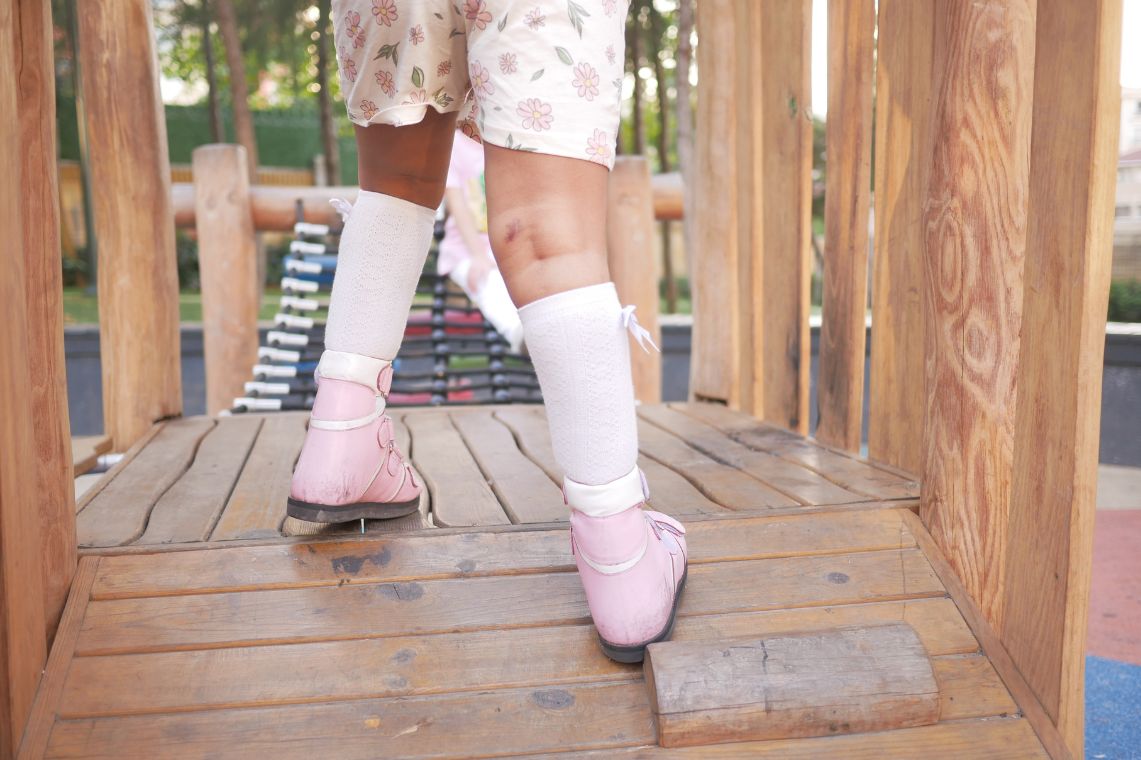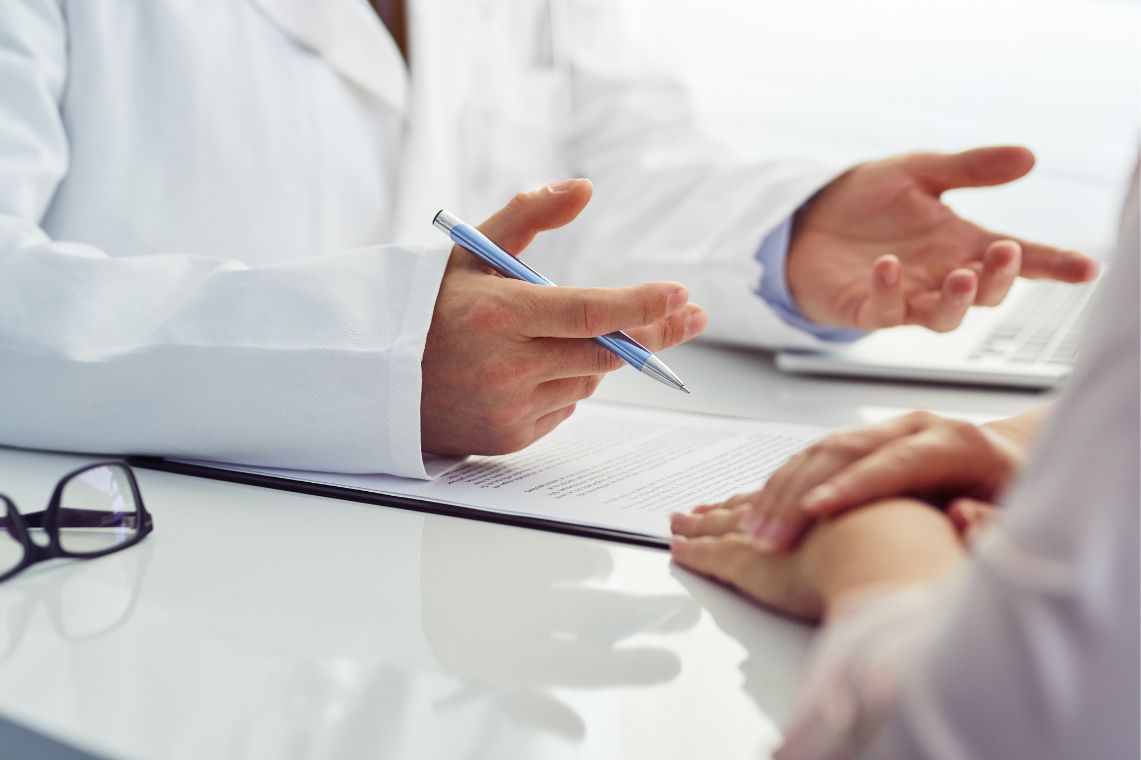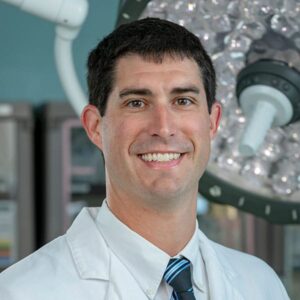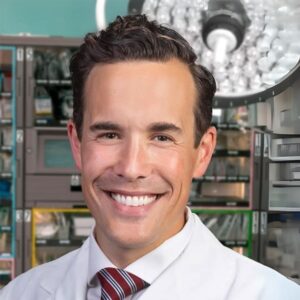Neuromuscular conditions like cerebral palsy can result in rotational abnormalities of the femur, tibia, and/or foot, which can ultimately affect the alignment of the limbs. This can cause gait abnormalities like in-toeing or out-toeing, which can affect the child’s mobility. These abnormalities can also contribute to other issues, including hip subluxation.
Our cerebral palsy specialists at Children’s Orthopaedic & Scoliosis Surgery associates will work with your child’s care teams, in association with Johns Hopkins All Children’s Hospital, to ensure that your child receives comprehensive care for conditions like rotational and gait abnormalities. Our lower extremity specialist, Dr. Bland, has had extensive training in the treatment of cerebral palsy and has worked with world-renowned cerebral palsy expert Dr. Henry Chambers.

What You Need to Know
In-toeing, commonly referred to as “pigeon toes,” occurs when the feet are turned inward. This can occur when the femur (thighbone) and hip is turned inward (hip subluxation may also be present), when the tibia (shinbone) is turned inward, or if the foot is curved inward. Though in-toeing is common in children without cerebral palsy, it may affect children with cerebral palsy more severely due to differences in muscle tone. If the child is mobile, in-toeing may be painful or affect their mobility.
Out-toeing occurs when the toes point outward instead of straight ahead. This can occur when the hips or the tibia are rotated outward. Muscle imbalances can also contribute to out-toeing. Depending on the cause and extent of the out-toeing, it can be painful and may affect the child’s mobility. Out-toeing may be present in just one of the legs, rather than both.
Restoring Stability and Mobility
When treating in-toeing and out-toeing in cerebral palsy patients, the goal is to delay surgery until they are older, if possible. This involves coordination among the patient’s care teams to ensure nonsurgical treatments are consistent and to determine if and when the patient should have surgery.
Early on, patients typically work with physical therapists and physiatrists, using braces to help with the problem until the child is older. Casting or special shoes may also be recommended.
If nonsurgical treatments do not help to correct the problem, or if the patient is experiencing pain, surgery may be recommended. The goal of surgery for rotational and gait abnormalities is to straighten the rotation in the limbs as much as possible to correct the deformity. This often involves in osteotomy, in which the bones are cut, rotated into better alignment, and held in place with pins and screws.
If surgery is needed to correct the problem, our surgeons will try to group procedures together whenever possible. By doing multiple procedures at once, we can reduce the risks of having the child under anesthesia multiple times. This may also reduce the time needed to recover from surgery and get back to physical therapy.


Board Certified Orthopaedic Surgeon

Board Certified Orthopaedic Surgeon
Specialized Pediatric Orthopaedic Care
At Children’s Orthopaedic & Scoliosis Surgery Associates, our specialists work with your child’s team of doctors to help provide comprehensive treatment for patients with neuromuscular conditions like cerebral palsy. Our surgeons help to treat rotational and gait abnormalities, working to delay surgery as long as possible. If surgery is needed, our surgeons have specialized training in surgical procedures for neuromuscular disorders.
If you would like to schedule an appointment with one of our specialists, please call our office at (727) 898-2663 or fill out our Appointment Request form.